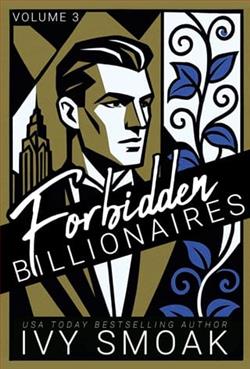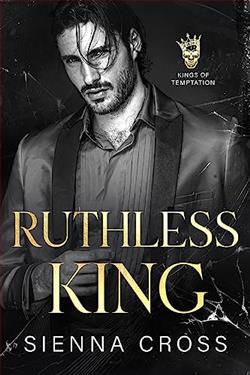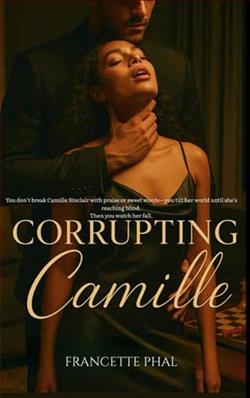Page 7 of Angel's Kiss
“And we are on such a tight schedule today.”
Erik’s mouth twitched in amusement. “Very well. I came to Paris for the first time a little under eleven years ago,” Erik began as he strode to a cupboard and took out a teapot, cups, and tin. “Can you tell me why that was poor timing on my part?”
“That would have been 1870... The war?”
“Very good,” Erik said with a nod. “I’d only been in the city for a few months before the Prussian army decided to join me. It was quite an experience. Paris was under siege. German bombs were falling everywhere, and the citizens felt it was their duty as Frenchmen to have another revolution. In the countryside, they were content outing Napoleon III, but here in the city, they declared the commune of Paris. I found the cause just, so I joined them.”
Christine’s eyes widened. “Youwere a communard?”
“I’ve been many things,” he replied meaningfully. “A builder is one of them, as you have guessed from my home. For the communards, I was a great asset in fortifying their base of operations, which happened to be in the half-finished opera house commissioned by the emperor they so hated, ten years before.”
“I heard about that,” Christine muttered as Erik spooned a generous portion of tea leaves into a chipped porcelain teapot. “An opera house seems an odd place to headquarter a new order.”
“It was big and empty. We used it mainly as an armory, but it’s such a maze it was a useful place to hide treasure as well. And prisoners. The building was half-finished, so it was easy to modify.”
“Modify?”
“Trap doors, false walls, hidden passages,” Erik bent to retrieve the kettle as he hesitated. “Trick mirrors.”
“So, that’s how you walk through walls?” Christine ventured, more disappointed than betrayed, as he poured the water into the pot and returned the kettle to a hook by the fire. “That’s so ordinary.”
“I’m sorry to disappoint you,” Erik said as he turned to her. He held out an empty hand, then with a flourish, a silver teaspoon appeared between his fingers. Christine gave a crooked smile. With another elegant movement, the spoon was gone. “But most magician’s tricks are fairly ordinary and disappointing when you know how they’re done.” He turned his hand over to show her where the spoon was hidden between his fingers.
“Is that what you are then? A magician?”
“As I said, I’ve been many things.” Erik set the spoon down and sighed. “Thanks to the work I did as a communard, the Paris Opera has an entire architecture that no one knows but me. And now you.”
Erik indicated a large, framed cross-section of the Opera hanging above the fire. It was vastly different from regular schematics of the Opera, covered with extra lines and with small notes in his messy, angular hand.
“The communards also kept their prisoners by the lake, in a chamber like this. I claimed this one as my own and I took to spending my time here as things worsened above,” Erik continued as Christine’s eyes found the lake on the diagram. “The leadership of the commune and I had, shall we say, disagreements, so I left before the siege ended and the commune fell. My modifications were hidden well enough that when the workers returned, they didn’t know anything had changed.”
“You said that was the first time,” Christine ventured as Erik carefully poured them cups of tea. “When did you come back?”
“Six and a half years ago,” he answered, far more darkness in his tone and demeanor now. “My second adventure in Paris went even worse than my first. And I was...” He flinched, reaching for his left shoulder, then pulling his hand back into a tense fist. “I was hurt. I needed somewhere to hide. I remembered this place and took refuge here. And I simply stayed. It turned out to be the perfect place: close to music, hidden away, an entire realm of illusion and magic between me and everything else.”
Erik took a careful sip of tea. It was odd to see the notorious Phantom do something so human.
“And when did you decide to become a ghost?” Christine asked, as she sipped her tea, which was an earthy sort of mint flavor that she had never had before.
“I don’t think you’ll believe me when I say I became a ghost rather by accident.”
Christine raised an eyebrow. “You’re right. I don’t.”
“There were already stories about ghosts at the Opera before I returned,” he said, holding her gaze. “They started when the workers came back after the war, knowing so much suffering had happened here. People saw things, heard things. When I took up residence, well – even with the passages, it’s difficult to be completely invisible. People saw a shadow in a mask or eyes in the dark. And the story grew into more. Within a few months, I was a phantom and I have been since.”
Christine considered him as he took a seat by the fire, gesturing for her to do the same. The chair was comfortable and well-used. It had to be after so long, didn’t it? “Six years down here,” she muttered as she took another sip of tea, trying to imagine what such a life would be like and how incredibly lonely it had to be. But maybe that’s why he had chosen it. “How old are you?” she asked, the words passing her lips before she could stop herself.
Erik blinked, as if it was a question he had not considered in a long time. It probably wasn’t. “Thirty-five,” he answered, then frowned. “No. Thirty-six. I know, I look older.”
Christine tilted her head, ignoring his dark joke. She was intrigued. “Have I just missed your birthday?”
“By a few weeks, I think.”
“Youthink?”
“I know it’s in early January, but...it was never marked.”
Christine winced at the sadness in his tone. “Mine is in July,” she offered hopefully.















